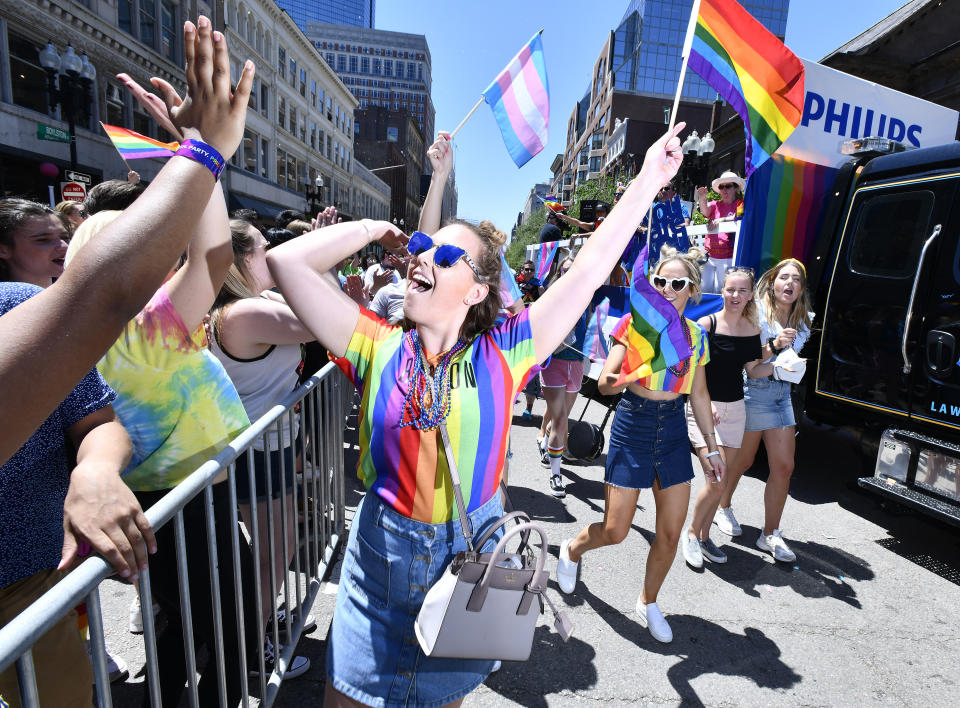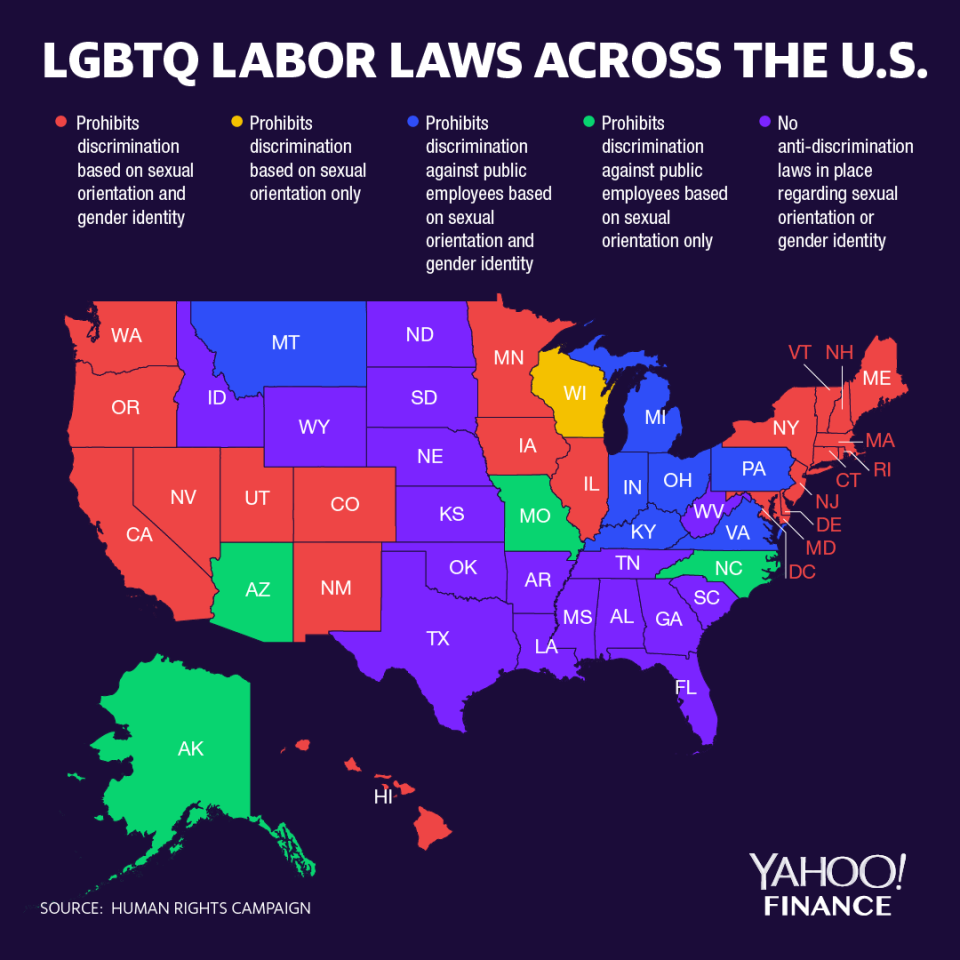'I just keep quiet': Survey finds only one-third of LGBTQ employees are out at work
Although major strides have been made for LGBTQ rights over the past decade, there is still major room to grow. According to a survey conducted by Verizon Media last month, just over one-third of LGBTQ (lesbian, gay, bisexual, transgender, or queer) employees at various companies are open about their sexual orientation at work.
The survey indicated that male LGBTQ employees were much less likely to be out at work than female LGBTQ employees. Additionally, the survey found that “non-LGBTQ employees are more likely than their counterparts to feel like they can be themselves at work.”

Some of the main reasons for this had to do with the fact that the individuals found it to be a private matter or did not want to be judged in the workplace.
“I don’t like to be judged, it would consume me, so I just keep quiet, but that makes me feel more isolated from everyone else as well,” one respondent said in the survey. “Being gay sucks!”
“Discrimination is prevalent,” another respondent said, while another stated, “I’m a teacher and teachers can’t be gay.”
According to the survey, 44% of LGBTQ employees have said they’ve experienced discrimination at work. “My new manager was homophobic and wrote me up until I stepped down,” one survey respondent said.
A total of 664 employees in the U.S. completed the survey, reporting that they work in various industries including health services, retail, education, finance, manufacturing, and technology; 115 of survey respondents identified as LGBTQ.
‘LGBTQ workers too often face a climate of bias...’
In the U.S., 21 states, along with D.C., have labor laws that prohibit discrimination based on sexual orientation and gender identity, according to the Human Rights Campaign (HRC). Meanwhile, Wisconsin’s labor laws prohibit discrimination based solely on sexual orientation. Seven states bar discrimination against public employees on the basis of sexual orientation and gender identity, and four states protect public employees based on just sexual orientation. There are 17 states, including Florida, Texas, and Alabama, that have no workplace protections in place for LGBTQ employees.
Even though a majority of states in the U.S. have some kind of LGBTQ labor protection laws in place, that doesn’t necessarily mean all of the LGBTQ employees feel comfortable being open in the workplace.

In a statement to Yahoo Finance, Beck Bailey, acting director of the HRC Foundation’s Workplace Equality Program, said: “While LGBTQ-inclusive corporate policies are becoming the norm across America’s largest and most successful companies, LGBTQ workers too often face a climate of bias in their workplace — especially in the absence of federal non-discrimination protections.
“LGBTQ employees are still avoiding making personal and professional connections at work because they fear coming out will negatively impact their relationships with coworkers. This hurts not only LGBTQ employees, but the company as a whole through lost engagement and productivity as well as unnecessary turnover. Even the best private sector employees with top-rate policies and practices must do more to bring those policies to life across their operations and nurture a climate of inclusion for all.”
Does the federal law protect LGBTQ workers?
While there is no federal law explicitly protecting workers on the basis of sexual orientation, some courts have found that Title VII of the Civil Rights Act of 1964 does in fact protect LGBTQ workers from discrimination.
That law prohibits employment discrimination based on race, color, religion, sex, and national origin; LGBTQ advocates say that the laws already in place should protect gay people under the existing "sex" provision.
The U.S. Court of Appeals for the Second Circuit came to the same conclusion in an August 2017 ruling: "We now conclude that sexual orientation discrimination is motivated, at least in part, by sex and is thus a subset of sex discrimination.”
“Title VII, when it was passed, the momentum and the thrust behind it was to help people of color, particularly African Americans, and women, but that’s not the way they wrote it. What they said was you can’t be discriminated against because of your race, your sex, your national origin, or your religion,” said Lambda Legal’s Senior Counsel and Director of the Employment Fairness Project Greg Nevins.
He continued: “Because they did it that way, white people — white men — can have a claim under Title VII. And similarly ... if someone were discriminated against because they’re heterosexual or cisgender, they would have a claim the same way we’re arguing. It doesn’t usually work that way, in reality, but if that happens to be the case, it’s an even-handed treatment.”
Not all courts have agreed, though, and as a result, the Supreme Court announced in April 2019 it will decide whether or not the law applies to sexual orientation.
Adriana is an associate editor for Yahoo Finance. Follow her on Twitter @adrianambells.
READ MORE:
Follow Yahoo Finance on Twitter, Facebook, Instagram, Flipboard, SmartNews, LinkedIn, YouTube, and reddit.

 Yahoo Finance
Yahoo Finance 
